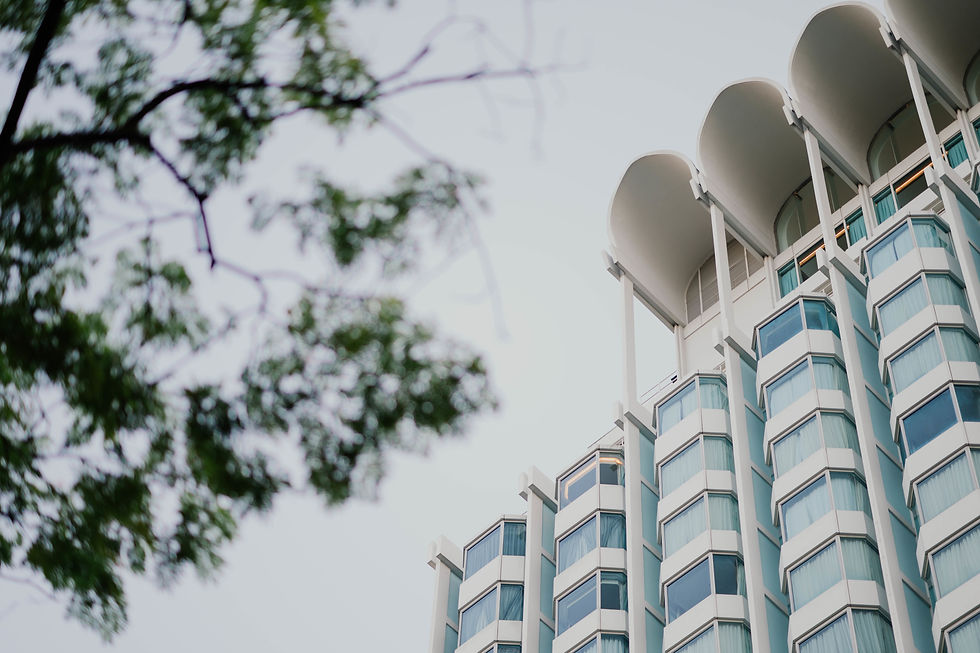Maharashtra's FDI Surge and Its Implications for the Real Estate Landscape
- Content Marketing Executive
- Jun 20
- 4 min read
Maharashtra, known as the financial heartbeat of India, is witnessing a remarkable growth in Foreign Direct Investment (FDI). This influx is attracting global businesses and has profound implications for the state's real estate sector. In this article, we will explore how this FDI surge is changing the real estate landscape, focusing on economic growth, urban development, and investment opportunities.

Understanding FDI in Maharashtra
Foreign Direct Investment refers to an investment made by a company or individual in one country that involves establishing business operations or acquiring assets in another country.
In Maharashtra, the government has taken significant steps to create an investor-friendly environment. For instance, reforms in regulatory norms have simplified approval processes by 30%, while significant infrastructure projects, such as the Mumbai Coastal Road and metro expansions, are enhancing connectivity. These combined efforts have led to a notable increase in FDI, with real estate emerging as one of the key beneficiaries.
As a result of these improvements, the FDI inflow reached $30 billion in the last fiscal year, indicating strong international confidence in Maharashtra's economic prospects. This capital influx not only bolsters the state's economy but also positively influences employment rates and infrastructure advancements, which are crucial for the real estate market.
The Impact on Real Estate Prices
An influx of investment leads to heightened demand for residential and commercial properties, particularly in Maharashtra's major cities—Mumbai, Pune, and Nagpur. With the population in urban settings expected to grow by 11% over the next five years, the competition for housing is escalating.
For example, the average price of residential properties in Mumbai has increased by approximately 20% just within the last year alone. This upward trend compels developers to initiate new projects, which could lead to further price increases. Investors must carefully analyze these market dynamics, as high demand can inflate property prices, making affordability a pressing concern.
Furthermore, the establishment of international company headquarters is driving significant demand for office spaces, which is anticipated to rise by 15% by 2025. This trend creates numerous opportunities for investors and developers alike while presenting challenges related to sustainable growth and market accessibility.
Shifting Urban Landscapes
Maharashtra’s urban transformation is closely linked to its FDI performance. As global corporations set up shop, urban regions are likely to see vital infrastructural improvements.
For example, the development of smarter, more connected cities, such as Navi Mumbai and Thane, is becoming a priority, with investments aimed at improving roads, public transport, and essential services. As these areas become more attractive, both domestic and foreign investors will likely seek opportunities in previously overlooked neighborhoods.
Government initiatives, such as the Smart Cities Mission, aim to enhance urban living standards, integrating technology in everyday life. This could turn outdated neighborhoods into thriving areas for commerce and residence, highlighting the need for stakeholders to identify promising real estate hotspots.
Employment Opportunities and Economic Growth
The rise in FDI correlates strongly with job creation and economic prosperity. New businesses entering Maharashtra typically require local talent, which leads to job openings across various sectors.
This economic growth translates to increased housing demand, as more individuals seek accommodation. Developers may respond by focusing on constructing mid-range and affordable housing, leading to a more balanced market environment.
For instance, the establishment of several tech parks in Pune has already given rise to a demand for 40,000 new housing units, demonstrating how increased employment opportunities significantly impact real estate needs. As income levels rise in the community, spending on housing, retail, and related services also increases, fostering a robust economic ecosystem.
The Rise of Sustainable and Smart Living
As international investors raise expectations regarding environmental impact, Maharashtra is shifting towards sustainable development in real estate. Developers are increasingly adopting eco-friendly practices and energy-efficient designs, responding to changing investor preferences.
For example, the state has seen a surge in green buildings certified by LEED (Leadership in Energy and Environmental Design), growing from 5% to 12% of new constructions in the past two years. This commitment to sustainable practices presents a unique opportunity for Maharashtra to take a leadership role in eco-friendly real estate development.
Risks and Challenges
While the FDI surge brings significant opportunities, it also poses certain risks and challenges. Rapid development can lead to land speculation, causing prices to rise beyond typical levels. This situation makes it challenging for local buyers to secure properties.
Moreover, infrastructure improvements must keep pace with the growing housing demands. If they fail to do so, the quality of life in rapidly developing urban centers may decline. Therefore, striking a balance between economic growth and social benefits is crucial.
It is also essential to address regulatory frameworks, which can become complex or slow-moving, potentially deterring investors. Regulators must act swiftly and effectively to maintain Maharashtra's appeal as a destination for FDI.
Summary of Findings
Maharashtra's FDI surge signifies a crucial turning point for its economy with far-reaching implications for the real estate market. The interplay between foreign investment, urban development, job creation, and sustainability outlines a hopeful vision for the state's future.
However, successfully navigating this growth demands thorough planning and a commitment to inclusivity. As the real estate landscape continues to shift, developers, investors, and policymakers must monitor trends and adapt their strategies accordingly.
Overall, the evolution of Maharashtra's real estate market in response to FDI is a complex but essential journey. There exists significant potential for sustainable growth that not only benefits the economy but also enriches the communities within this vibrant state.




Comments